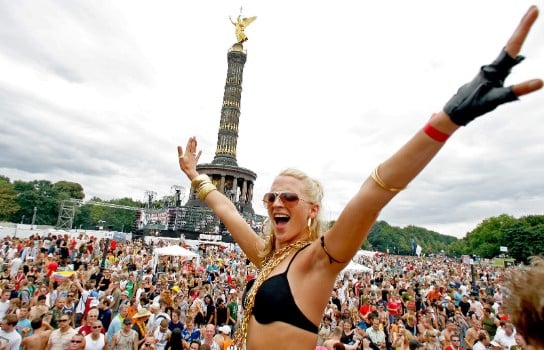City economics minister, Ramona Pop, sent a letter to district mayors calling on them to find parks, streets, squares and sports halls that would make suitable venues.
“Berlin misses its diverse club scene. Clubs and bars are suffering economically during the corona crisis. That's why, in addition to providing immediate aid, we want to create legal opportunities to party in public areas for the clubs and Berliners,” Pop told the Berliner Morgenpost.
“In this way, legal celebrations can be organised professionally and in compliance with rules,” she added.
The city has reportedly made the move in response to unrest in Stuttgart and Frankfurt, where young drunk revellers attacked police in city centres. In Stuttgart the situation spiralled out of control, with people looting shops and smashing.
READ ALSO: Berlin boat demo turns into rave with little social distancing
Another motivating factor seems to be the illegal raves that having been taking places in and around Berlin in recent weeks.
“Unfortunately, the time window for this is short, as the summer months are of central importance for open air festivals. It is therefore important to quickly put the industry in a position to realise at least part of its revenues via open air events this summer,” said Pop.
All clubs had to close their doors at the beginning of the epidemic on March 14th. There is still no news on when they will be allowed to fully reopen but some have started to offer small outdoor parties.
READ ALSO: Berlin clubs receive an average of €81,000 to ensure corona doesn't kill off techno
Berlin, famous like no other German city for its cultural vibrancy, has already handed out €30 million in support to cultural venues. The city's culture ministry has promised to double that sum over the next two months.
Techno clubs including About Blank, Kater Blau and Tresor have received an average of €81,000 to ensure that they don't go bust.
SEE ALSO: Berlin to fine people who flout coronavirus face mask rules



 Please whitelist us to continue reading.
Please whitelist us to continue reading.
The lives of plants and animals in those parks are certainly und incomparably more important than the club and the drug scenes.